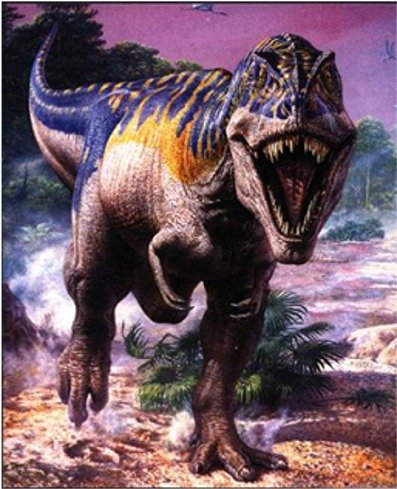

Jack Horner, the technical adviser on Jurassic Park and professor of palaeontology at Montana State University, is hoping to use living birds to hatch a dinosaur.
Jack Horner believes that a modern bird’s DNA contains a genetic memory that could be “switched on” again, resurrecting long-dormant dinosaur traits.
What’s more, Jack Horner is looking for a helper to assist in the retro-engineering of a prehistoric beast.
Jack Horner told LiveScience: “I’m looking for a postdoctoral researcher. An adventurous postdoc who knows a lot about developmental biology and a little bit about birds.”
He explains that to make a dinosaur, he would start with the genome (the whole hereditary information encoded in the DNA) of an emu.
“Emus have all the features we need in order to make a Velociraptor-sized dinosaur,” Jack Horner says.
“If I were to make a dinosaur that is where I’d start.”
Jack Horner’s work is supported by other leading academics.
Sean Carroll, a geneticist at the University of Wisconsin, says: “The inventory of genes in a bird would be very similar to the inventory of genes in a dinosaur.
“It is differences in the decision-making that takes during development that make the difference between a chicken and a tyrannosaurus.”
Hans Larsson, a palaeontologist at McGill University in Canada, conducted an experiment recently into the evolution from dinosaurs’ long tails into birds’ short tails more than 150 million years ago.
Looking at a two-day-old chicken embryo, he made an unexpected discovery.
Expecting to see between four and eight vertebrae present in the developing spine, his microscope instead picked out 16 vertebrae – effectively a reptilian tail.
As the embryo developed, the “tail” became shorter and shorter, until the young bird hatched with only five vertebrae.
Hans Larsson says of the significance of the find: “For about 150 million years, this kind of a tail has never existed in birds.
“But they have always carried it deep inside their embryology.”
So, the blueprint for a dinosaur remained locked inside the modern-day bird.
Hans Larsson now believes that in a hundred years or so, geneticists could retro-engineer animals that appear identical to Mesozoic dinosaurs.
“Why can’t we take all the genetics, just change it around a little bit, and produce a Tyrannosaurus Rex, or something that looks like one?” he asks.
“I think that kind of scenario is quite possible. Maybe sooner than we think.”
John Fallon, a developmental biologist at the University of Wisconsin, agrees, saying: “As we learn more, we’ll be able to do it.
“The genetic knowledge is in the bird.”
Jack Horner, meanwhile, imagines creating the first example.
“I have to admit that I’ve certainly imagined walking up on a stage to give a talk, and having a little dino-chicken walk up behind me,” he says.
“That would be kind of cool.
“There is now nothing to stop us bringing back dinosaurs but ourselves.
“People who don’t believe it don’t know much about evolution.”
Jack Horner adds: “Whether it is a good idea or not is another question…”